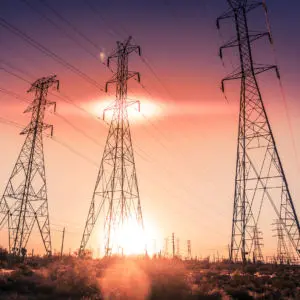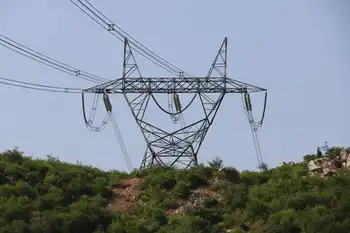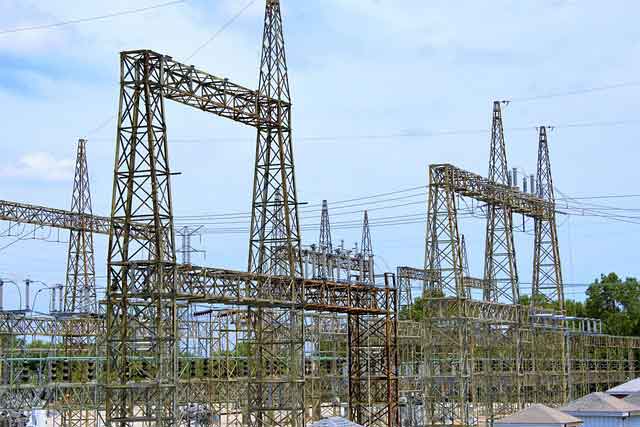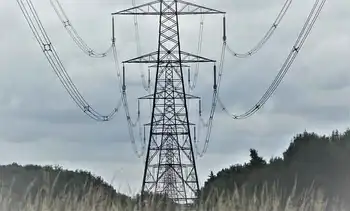Report calls for sale of Hydro-Québec
By Globe and Mail
NFPA 70e Training - Arc Flash
Our customized live online or in‑person group training can be delivered to your staff at your location.

- Live Online
- 6 hours Instructor-led
- Group Training Available
The long-awaited study, to be released and authored by Claude Garcia, the retired former head of Standard Life's Canadian unit, is likely to reignite a political debate in Quebec about how to best exploit the province's vast hydroelectric resources.
Mr. Garcia last year estimated Hydro-Québec's market value at an eye-popping $130-billion, based on average North American electricity prices. Actually getting that much for Hydro-Québec, the developed world's biggest hydroelectric utility, would be unlikely, however, since power rates in Quebec are currently fixed well below market prices.
Hydro-Québec, a symbol of provincial economic prowess that took flight with the 1963 nationalization of the province's hydroelectric industry, currently charges deeply discounted rates to consumers in the province. Surpluses are sold to customers in the United States at market rates, but the highly profitable exports only account for about 10 per cent of Hydro-Québec's $12.3-billion in annual sales.
Big industrial energy users in Quebec, such as aluminum smelters and paper mills, pay on average only half as much as factories operating in Ontario and a quarter of the amount that is charged in Boston or New York.
Critics say the pricing strategy encourages overconsumption – and hence, overbuilding – in Quebec and deprives the utility of billions in potential revenues.
Mr. Garcia's study is the most comprehensive to date in its scrutiny of Hydro-Québec's operational efficiency and business strategy.
The study also challenges Premier Jean Charest's use of Hydro-Québec to further the government's own economic growth targets. The premier has ordered the utility to embark on an aggressive dam construction phase aimed at adding 4,500 megawatts of new hydro capacity by 2015.
Mr. Charest recently boasted that the additional dam building, combined with other Hydro-Québec projects already under way, puts Quebec well ahead of the rest of Canada in adopting a stimulus package to rescue the flagging economy.
At Mr. Charest's behest, Hydro-Québec will invest $5-billion in new construction this year, compared with $4.5-billion in 2008 and $3.6-billion in 2007.
But according to Hydro-Québec's own estimates, the bulk of the new hydro generating stations will produce electricity for almost twice as much as the utility currently charges domestic consumers.
And if the past is any guide, Mr. Garcia fears the new dams will come in vastly over budget.
Mr. Charest said the investment by Hydro-Québec, coupled with the provincial government's own infrastructure program, will pump $72-billion into the Quebec economy in the next decade.
“Thanks to this plan we're ahead of other governments,” Mr. Charest said at the World Economic Forum in Davos, Switzerland, where he told reporters he was negotiating with investors to attract “hundreds of millions of dollars” to the province.
Quebec regularly uses cheap electricity, and guarantees of low prices on a long-term basis, to entice industry to the province. Mr. Garcia's study documents the true costs of Hydro-Québec's strategy, while demonstrating just how inefficient the government-owned monopoly has become.
For instance, according to the study, the implementation of a new “client information system” was supposed to cost $270-million when it was announced in 2002. But the initiative is behind schedule and now expected to cost double the 2002 projection, without providing the promised productivity gains.
The privatization of Hydro-Québec, along with a gradual increase in electricity rates and the introduction of competition in the marketplace, would raise tens of billions to pay down Quebec's massive $124-billion net public debt and increase the government's annual tax haul, the study concludes.
As a Crown corporation, Hydro-Québec does not pay federal or provincial income taxes, though it sends an annual dividend to Quebec City. The dividend totalled $2.1-billion in 2007.
During last fall's election campaign, the opposition Action Démocratique du Québec proposed selling off 7.5 per cent of Hydro-Québec to citizens in the province to raise $10-billion and inject a dose of transparency into the often-secretive utility. By selling shares to the public, Hydro-Québec would be forced to adhere to the same disclosure rules as other publicly traded companies.











